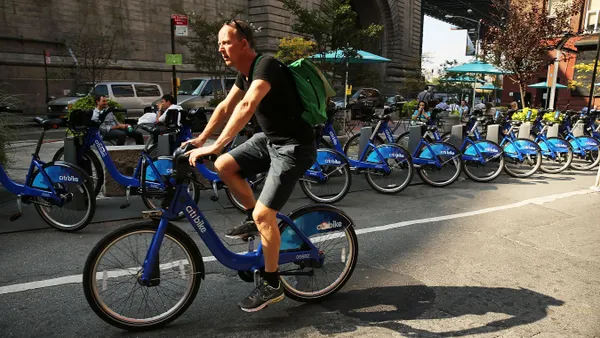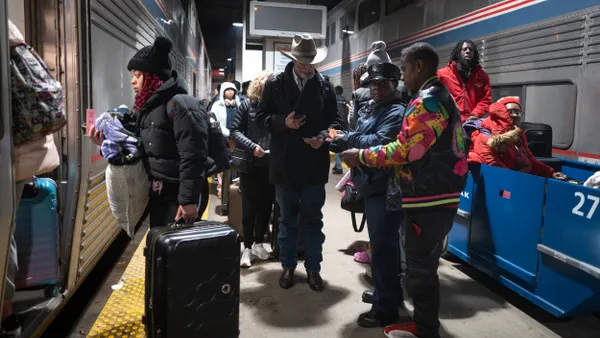Dive Brief:
- The U.S. Senate has passed a $154.2 billion FY 2019 appropriations bill, or "minibus," with funding for four federal departments, including the U.S. Department of Transportation (DOT). The spending bill includes $16.1 billion for public transit, with $2.5 billion of that dedicated to intercity passenger rail grants.
- The minibus also includes $8.1 billion in funding for the Environmental Protection Agency (EPA), which is $2.7 billion over what was requested in the Trump administration's FY 2019 budget proposal.
- President Trump still has to approve the minibus for it to officially go through. The White House had expressed concerns with it in days leading up to a vote because the minibus is nearly $38 billion over the administration's FY 2019 budget request. The White House statement specifically called out the EPA funding as well as the DOT grant funding, saying the programs "disproportionately allocate funds to projects in states and regions that have the financial wherewithal to provide more support to projects that benefit those areas."
Dive Insight:
The Senate has been pushing through funding legislation in an effort to prevent the federal government from shutting down when funding runs out on September 30. However, President Trump repeatedly has threatened to shut down the government over immigration policy, most notably his proposed wall along the Mexican border. It is unclear if the president will approve the minibus with its environmental and transportation funding that the administration tends to view unfavorably.
Still, the funding passed through the Senate, with a boost for the EPA during a time when environmental measures are taking hits from the administration. Just last week the EPA proposed freezing auto emissions standards at 2020 levels, to which a coalition that calls itself the Climate Mayors quickly responded with a condemnation. The group repeatedly has expressed city-level promises to uphold the Paris climate agreement.
The transportation funding "puts America on a path to help address the nation’s $90 billion public transportation infrastructure backlog identified by the U.S. Department of Transportation," American Public Transportation Association (APTA) president and CEO Paul P. Skoutelas said in a statement. “These actions taken by the Senate will help move investment in America’s public transit infrastructure forward and help communities of all sizes create economic growth."
Many state and local transportation projects receive some sort of funding, but the intercity passenger rail grants are notable because transportation solutions often are focused within municipal confines. Connections to other cities might not be considered for a number of reasons, not the least of which is how to equitably contribute funds and distribute resources among all participants. But an injection of federal funds takes away some of that uncertainty and potential for local disagreements. Intercity rail projects could improve mobility options for commuters, reducing the number of personal vehicles on the road, traffic congestion and vehicle emissions.










